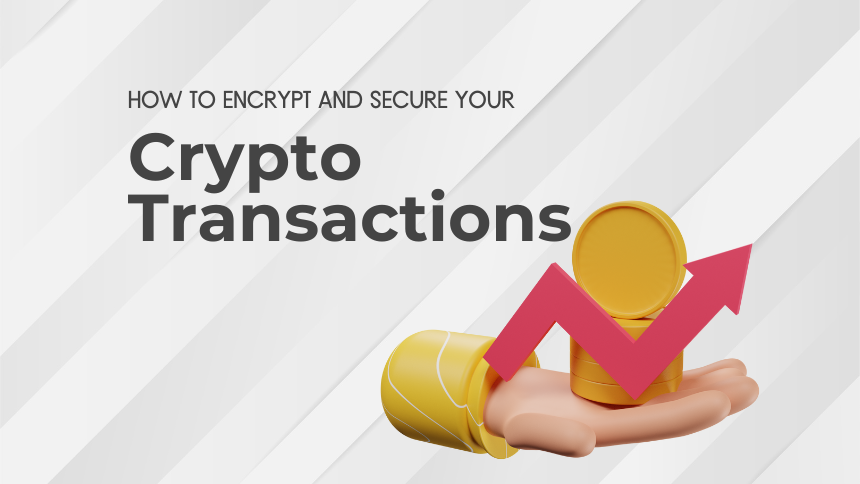Encrypting and securing crypto transactions is paramount in the world of cryptocurrency. With the increasing prevalence of cyber threats and hacking incidents, protecting your crypto transactions is essential to safeguarding your assets. Encryption plays a vital role in securing transactions, ensuring that your sensitive information remains confidential and inaccessible to unauthorized parties. In this informative guide, we will explore the importance of encryption in crypto transactions and provide practical tips on how to encrypt and secure your transactions effectively.
Understanding Encryption in Crypto Transactions
Encryption is the process of encoding information in such a way that only authorized parties can access it. In the context of cryptocurrency transactions, encryption ensures that sensitive data, such as private keys and transaction details, is protected from interception and unauthorized access. By encrypting your transactions, you can prevent hackers and malicious actors from gaining access to your funds and personal information.
Importance of Encrypting Crypto Transactions
Encrypting crypto transactions offers several important benefits:
- Confidentiality: Encryption ensures that your transaction details remain confidential and cannot be intercepted or viewed by unauthorized parties. This protects your privacy and prevents sensitive information from falling into the wrong hands.
- Integrity: Encryption helps maintain the integrity of your transactions by preventing tampering or alteration of transaction data. This ensures that your transactions are secure and verifiable, reducing the risk of fraud or manipulation.
- Authentication: Encryption allows you to verify the authenticity of transaction recipients and ensure that you are sending funds to the intended recipient. This helps prevent unauthorized transactions and protects against impersonation attacks.
- Non-repudiation: Encryption provides cryptographic evidence of transaction authenticity, making it difficult for parties to deny their involvement in a transaction. This enhances accountability and reduces the risk of disputes or fraudulent claims.

How to Encrypt and Secure Your Crypto Transactions
Use Secure Wallets:
Choose reputable cryptocurrency wallets that offer advanced security features, such as encryption of private keys and multi-factor authentication. Hardware wallets, such as Ledger and Trezor, provide enhanced security by storing private keys offline and requiring physical confirmation for transactions.
Enable Two-Factor Authentication (2FA):
Enable 2FA on your cryptocurrency exchange accounts and wallets to add an extra layer of security. 2FA requires users to provide a second form of verification, such as a one-time code sent to their mobile device, before accessing their accounts or initiating transactions.
Encrypt Communication Channels:
Use secure communication channels, such as HTTPS websites and encrypted messaging apps, when conducting cryptocurrency transactions online. Avoid accessing cryptocurrency wallets or exchanges over unsecured Wi-Fi networks or public hotspots, as they may be vulnerable to interception and hacking.
Update Software Regularly:
Keep your cryptocurrency wallets, exchange platforms, and operating systems up to date with the latest security patches and updates. Software updates often include fixes for security vulnerabilities and help protect against emerging threats.
Practice Safe Storage:
Store your cryptocurrency wallets and private keys securely, preferably offline or in cold storage. Consider using hardware wallets or encrypted USB drives to protect your private keys from theft or unauthorized access.
Verify Transaction Details:
Before confirming any cryptocurrency transaction, double-check the recipient address and transaction amount to ensure accuracy. Beware of phishing attacks and fraudulent websites that mimic legitimate cryptocurrency platforms to steal sensitive information.
Educate Yourself:
Stay informed about the latest security best practices and common threats in the cryptocurrency space. Educate yourself about phishing scams, malware attacks, and other security risks, and take proactive measures to protect your assets.
Conclusion
Encrypting and securing your crypto transactions is essential to protecting your assets and personal information from cyber threats and malicious actors. By following the practical tips outlined in this guide and adopting robust security measures, you can safeguard your cryptocurrency holdings and conduct transactions with confidence. Remember to prioritize security at all times and remain vigilant against potential threats in the ever-evolving landscape of cryptocurrency. With the right precautions and proactive approach, you can minimize risks and enjoy the benefits of decentralized finance securely.
